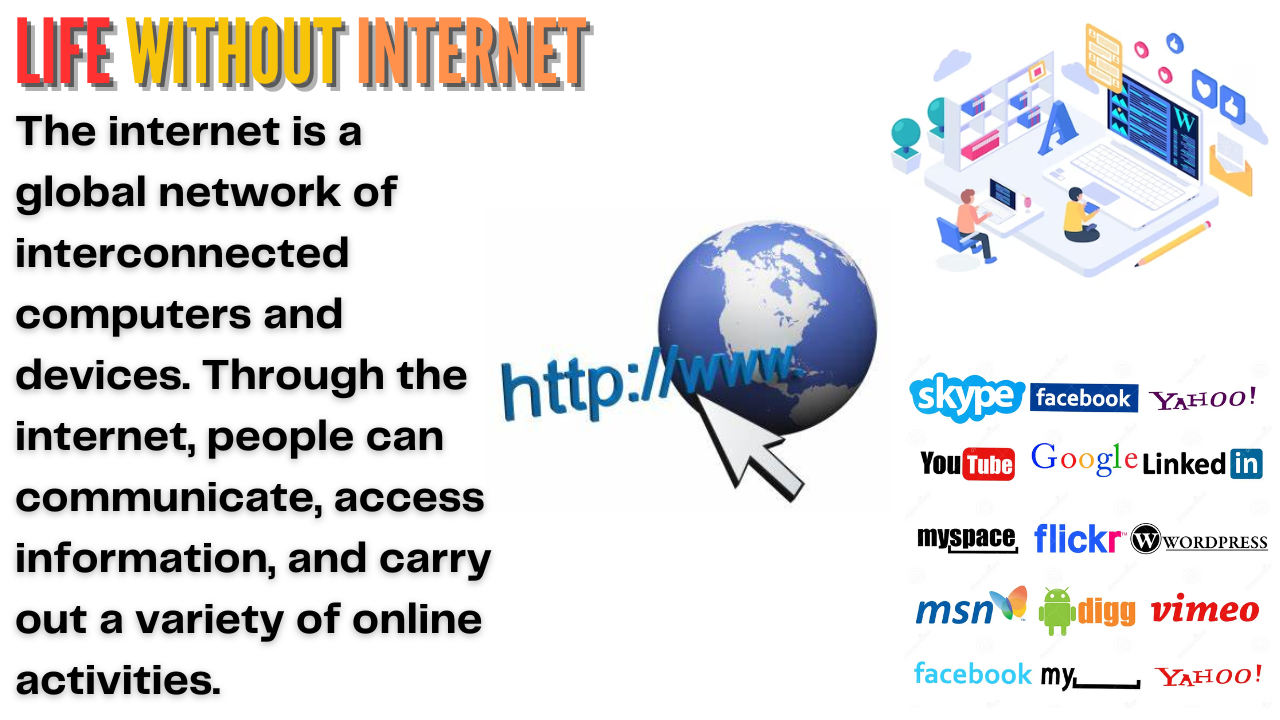
The Internet: Linking the World
Through the internet, people can communicate, access information, and carry out a variety of online activities. The internet is a global network of interconnected computers and devices. It allows for online transactions and services via e-commerce platforms and digital tools, as well as instant communication via email, messaging, and social media platforms. It also gives users access to a vast information repository through websites and search engines. In this article, we will look at the history, characteristics, social impacts, security concerns, and possible future advancements of the internet.
Table of Contents:
The Evolution of the Internet: Life without the internet
ARPANET, a 1960s U.S. Department of Defense project, marked the beginning of the internet. ARPANET, which was initially intended for military communications, laid the foundation for the contemporary internet. With the help of visionaries like Tim Berners-Lee, it developed into the World Wide Web over the years.
Expansion and Commercialization: As the internet grew in popularity, it expanded beyond its military origins and became accessible to a wider audience. The commercialization of the internet in the 1990s marked a significant turning point, paving the way for the rise of e-commerce and online services.
Emergence of the World Wide Web: Tim Berners-Lee’s invention of the World Wide Web in 1989 revolutionized the way people interacted with the internet. The introduction of hypertext and multimedia content transformed the internet into a user-friendly platform for accessing and sharing information.
Mobile Revolution: The proliferation of mobile devices and wireless technologies in the early 21st century ushered in a new era of connectivity. Mobile internet access enabled users to go online anytime, anywhere, fueling the growth of mobile apps and responsive web design.
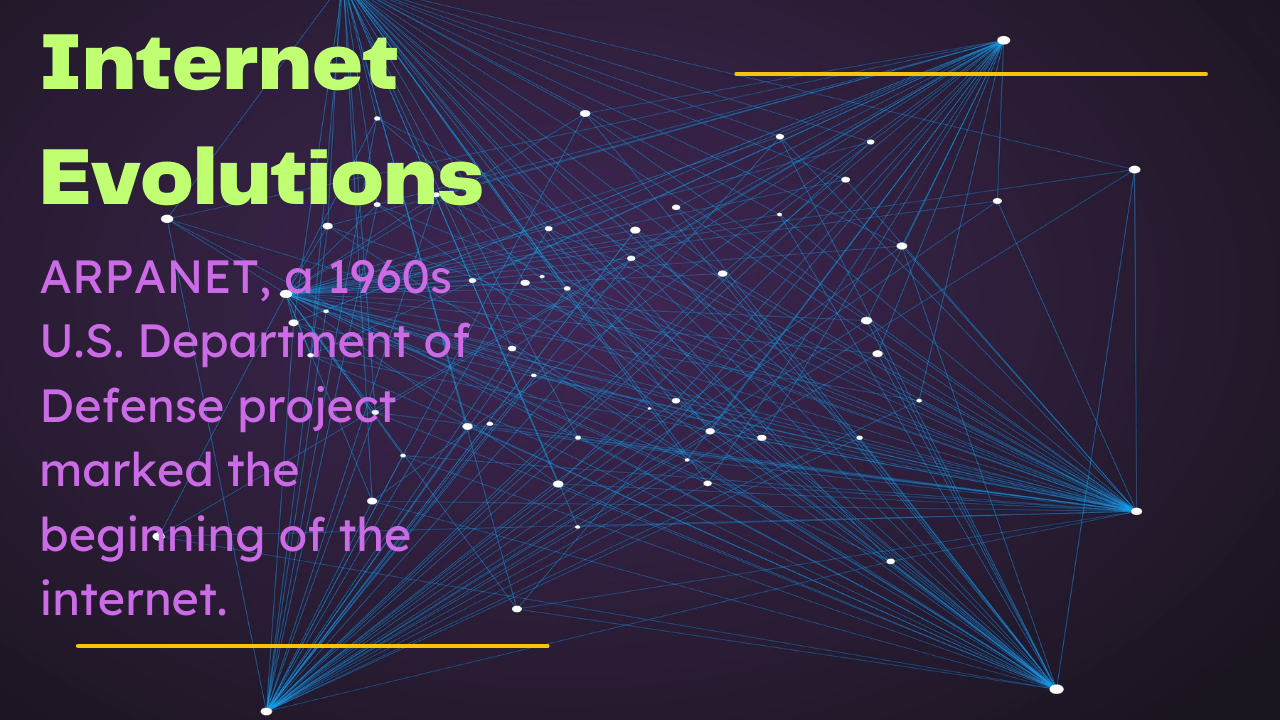
How the Internet Works: Life without the internet
At its core, the internet is a global network of interconnected devices. It operates through a complex system of infrastructure, including servers, routers, and cables. Protocols like TCP/IP facilitate data transmission across this network, ensuring seamless communication between devices.
Infrastructure: The internet operates through a complex infrastructure of interconnected networks, including servers, routers, and data centers. These physical components form the backbone of the internet, enabling data to be transmitted and routed across vast distances.
Protocols: Protocols such as TCP/IP (Transmission Control Protocol/Internet Protocol) govern how data is transmitted and received over the internet. TCP ensures reliable delivery of data packets, while IP addresses facilitate the routing of packets to their intended destinations.
Data Transmission: When a user sends data over the internet, it is broken down into packets, each containing a portion of the original message. These packets travel across the network, passing through various routers and switches until they reach their destination.
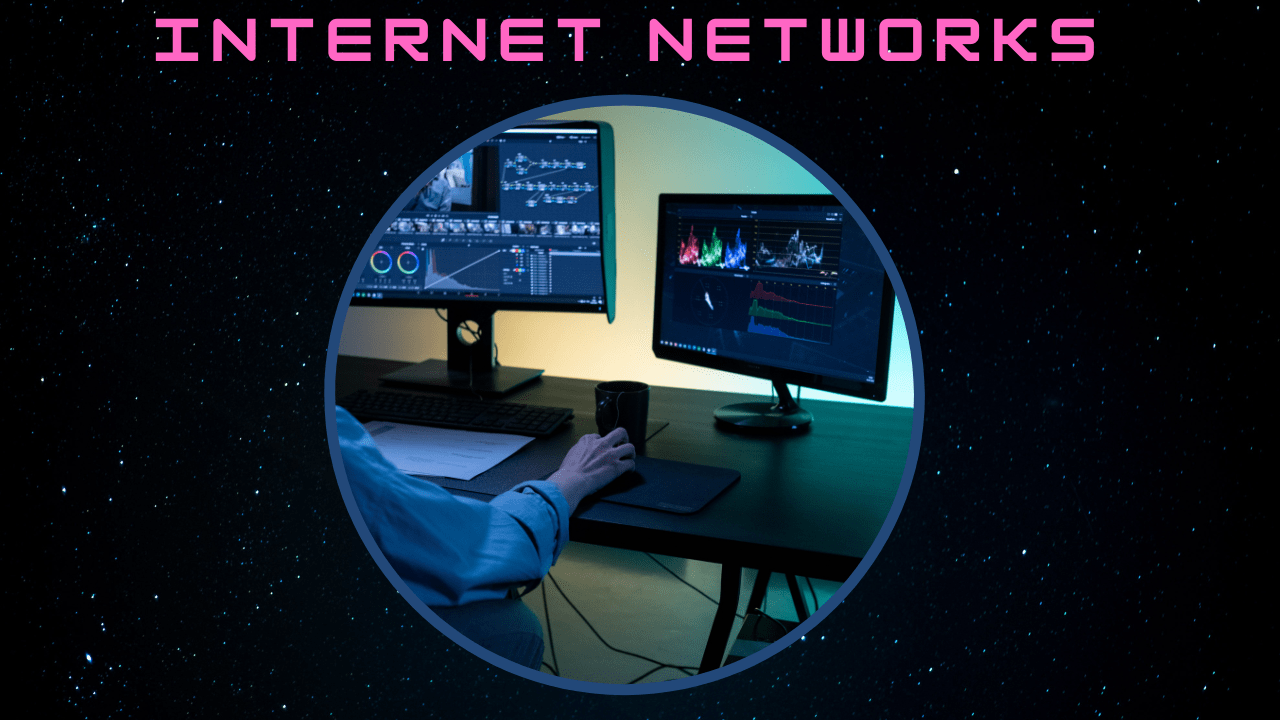
Here are some aspects to consider if there is no internet in your life:
- Communication:
- Communication would heavily rely on traditional methods such as face-to-face conversations, phone calls, and postal services. Instant messaging, emails, and social media platforms, which are integral to modern communication, would be absent.
- In a world without the internet, communication would be more localized, personal, and reliant on physical resources. While this may bring a sense of nostalgia and a return to traditional forms of communication, it would also pose challenges in terms of the speed and efficiency of information exchange, especially across long distances.
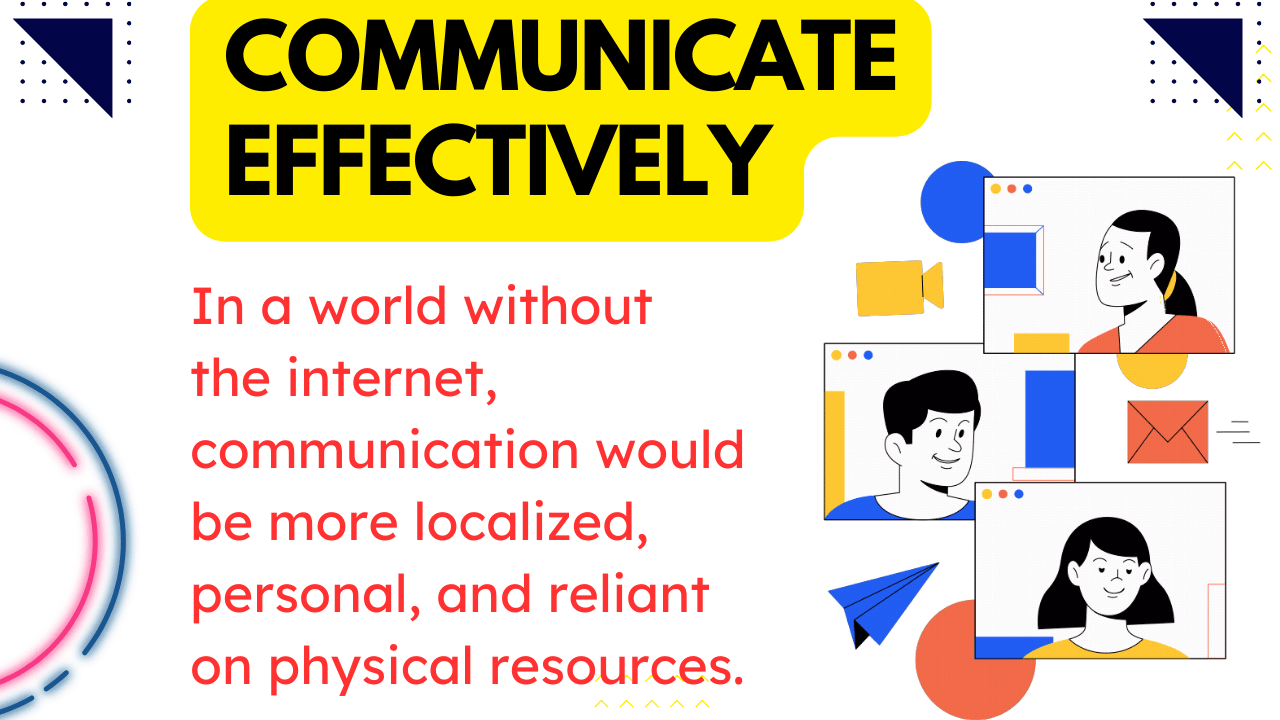
- Entertainment:
- Entertainment options would be different without online streaming services, social media, and online gaming. People would rely more on traditional media such as television, radio, books, and local events for leisure.
- Entertainment without the internet is not a step back in time; it’s a leap into a diverse world of offline enjoyment. From unplugged analog activities to exploring the great outdoors, the options are limitless. Embrace simplicity, engage with the tangible, and rediscover the joy of entertainment without being tethered to the online world.
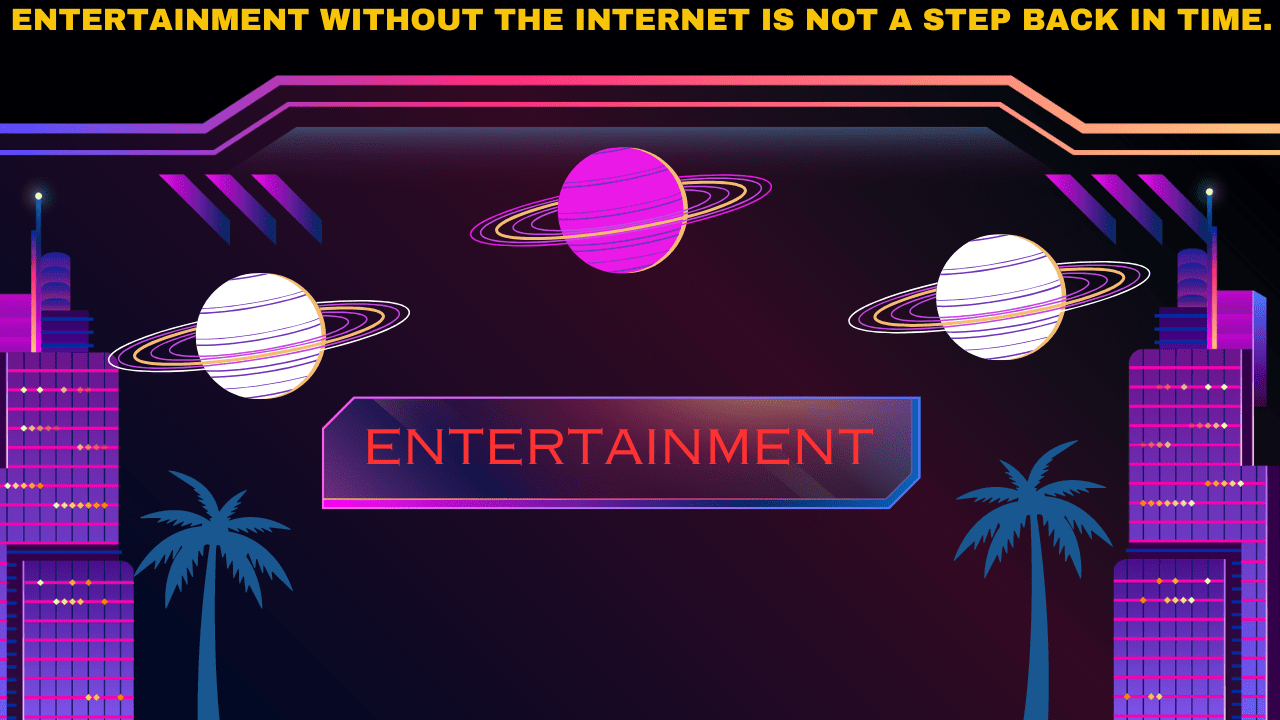
- Work and Productivity:
- Many aspects of the work would need to be adapted. Physical documents and in-person meetings would take the place of cloud-based services, online collaboration tools, and virtual meetings that are frequently used in remote work scenarios.
- In a world where internet connectivity is often synonymous with productivity, the notion of working without the internet may seem counterintuitive. However, there are myriad ways to maintain efficiency and focus on tasks even when offline.
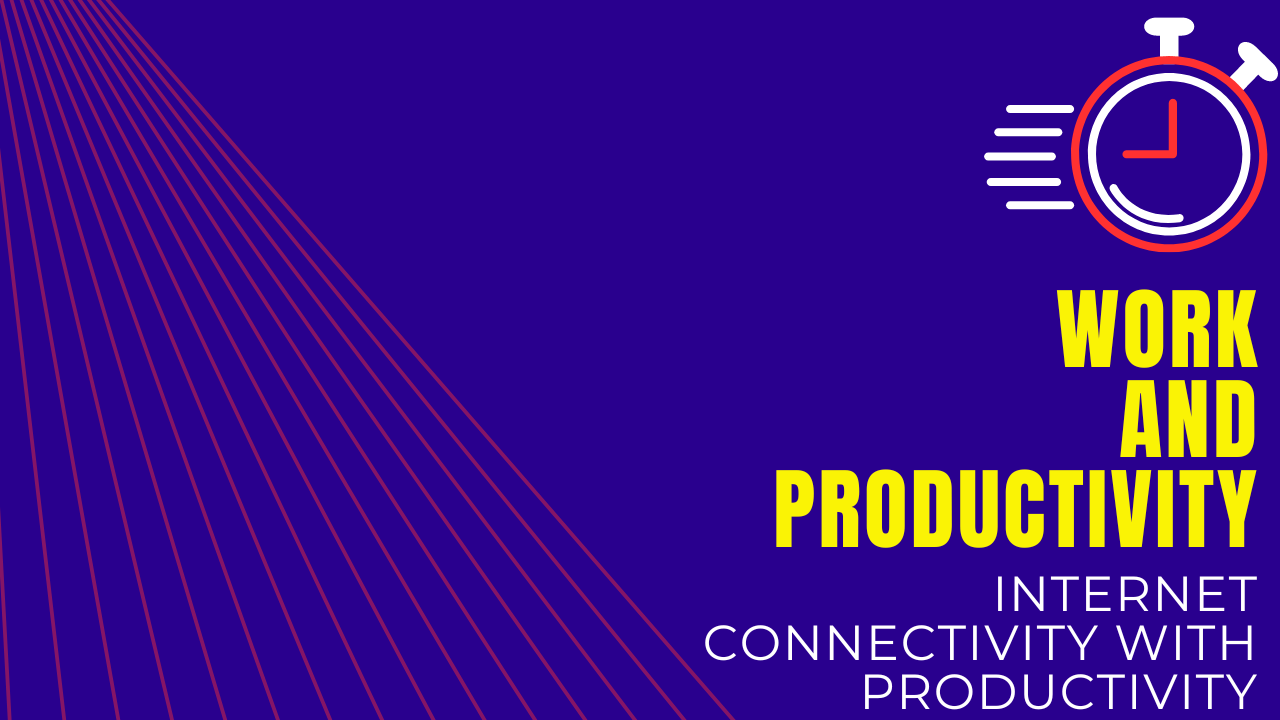
- Commerce and Shopping:
- E-commerce would cease to exist, and shopping would return to traditional brick-and-mortar stores. Online banking and digital transactions would be replaced by physical currency and in-person transactions.
- In a world where online shopping dominates, the idea of engaging in commerce and shopping without the internet may sound like a journey back in time. However, there’s a charm and authenticity to offline retail experiences that go beyond the click of a button.
- Commerce and shopping without the internet offer a return to the authentic, tactile experience of retail. From exploring local markets to engaging with brick-and-mortar stores, the offline world of commerce is rich with opportunities to discover, connect, and support local businesses.

- Education:
- Educational resources would primarily come from physical textbooks, local libraries, and traditional classroom settings. Online courses, e-learning platforms, and digital educational tools would no longer be available.
- In a world increasingly reliant on digital connectivity, the concept of education without the internet may seem challenging, but it’s a reality for many individuals around the globe. Online connectivity should not be a barrier to high-quality education access.
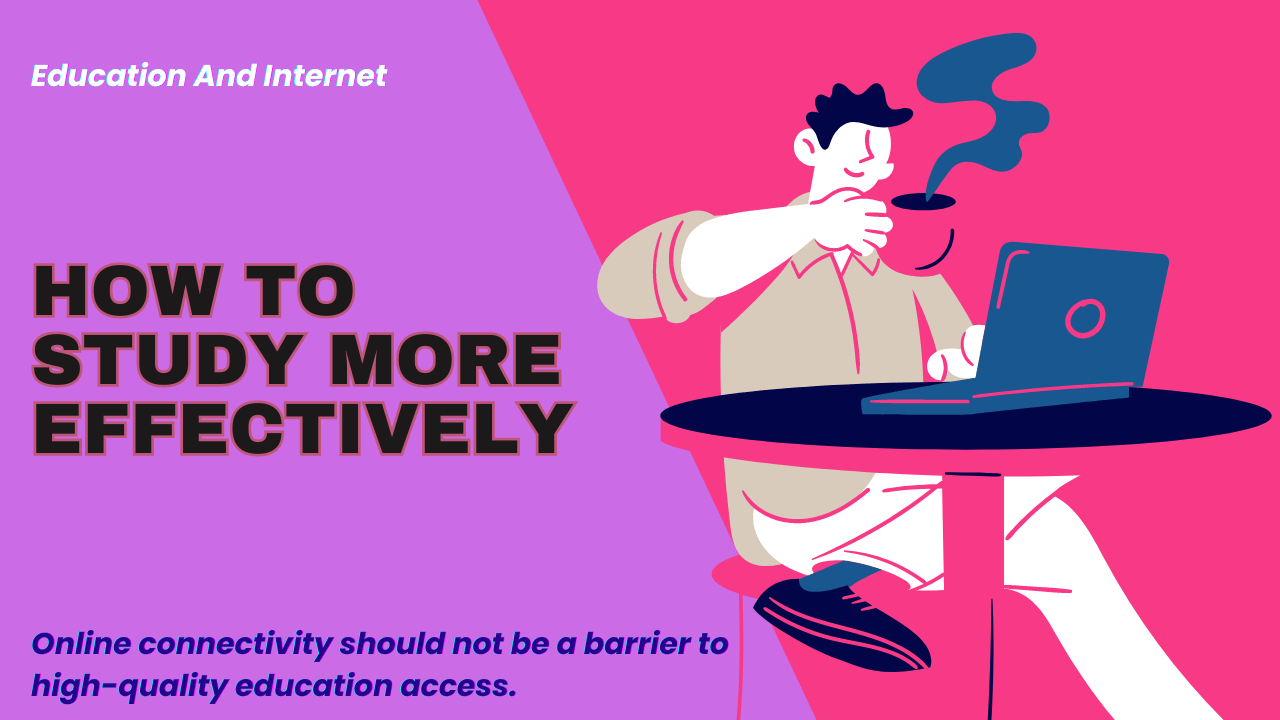
- Social Connections:
- Social interactions would be limited to physical gatherings, community events, and local social groups. Long-distance relationships would require more effort and reliance on letters or phone calls.
- Social connections without the internet are not only possible but can also be more profound and authentic. By engaging in face-to-face interactions, participating in community events, and cultivating relationships through shared interests, individuals can foster meaningful connections that stand the test of time.

- Travel and Navigation:
- Without online maps and navigation systems, people would need physical maps and ask for directions. Travel arrangements would be made through travel agencies, and real-time updates on traffic and weather would be unavailable.
- Traveling and navigating without the internet may require a shift in approach, but it opens up opportunities for authentic and immersive experiences. From relying on traditional maps to engaging with local communities, the offline journey unveils a world of exploration beyond the confines of digital screens.
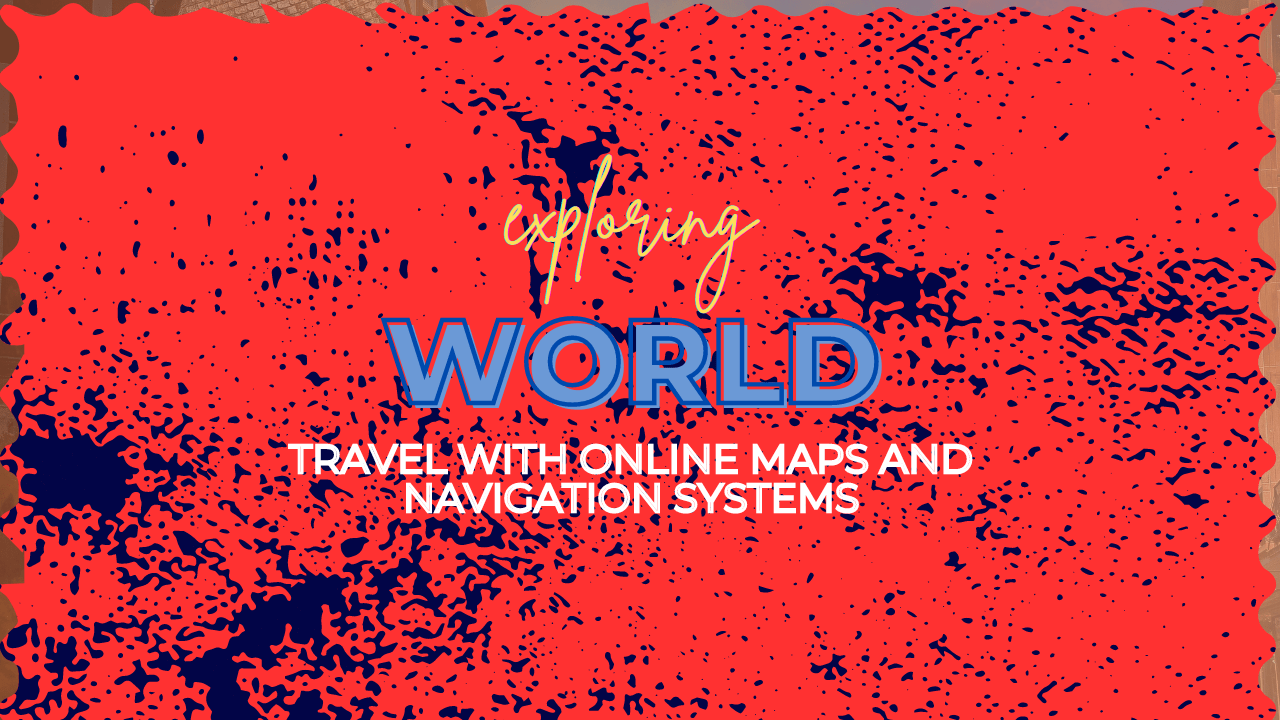
- News and media consumption:
- Radio, television, and daily newspapers would replace the rapid dissemination of news via social media and online news portals.
- Consuming news and media without the internet involves a return to traditional and community-based sources of information. From print newspapers and radio broadcasts to library resources and personal conversations, there are numerous offline avenues to stay informed and engaged in a digitally connected world.

- Innovation and Technology:
- The absence of the Internet would impede the rapid exchange of ideas and hinder the collaborative development of technology. Innovations would rely more on localized efforts and traditional research methods.
- Innovation and technology have deep roots that extend beyond the internet age. Through offline research, traditional communication methods, local collaboration, education, and testing, innovators can continue to make strides without constant internet access. By embracing the offline frontier, technological advancement remains accessible to those navigating a world without uninterrupted digital connectivity.

Conclusion:
All in all, life without the Internet isn’t a return to the past; it’s an embrace of simplicity, direct connections, and a focus on the tangible aspects of existence. While the internet has undeniably transformed the way we live, rediscovering life without it unveils a world where relationships are personal, entertainment is hands-on, and the pace of life allows for a deeper appreciation of each moment. In a world accustomed to the constant hum of online connectivity, envisioning life without the internet may seem like an exercise in imagination.
FAQS:
Q1. Can you imagine life without the internet?
Ans. Almost 18,000 people from 23 different countries participated in an Ipsos survey, and two thirds of them said they could not imagine their lives without the internet.
Q2. Would a life without the internet be a good idea?
Ans. Living without the internet has many advantages, but one in particular is noteworthy: you would have more opportunities for genuine human interaction. Not all of the advantages come from how much time we spend awake. Our sleep is being ruined by our addiction to connected devices.
Q3. How many internet users are estimated worldwide?
Ans. Estimates place the number of internet users worldwide in the region of 3.6 billion – around half the world’s population.
Q4. Which country has the highest numbers of internet users?
Ans. China, which has the highest number of internet users of any country (731 million as of March 2017), is third, with 77%.
Q5. How many people are online?
Ans. As of January 2024, there are approximately 5.35 billion internet users worldwide, which accounts for 66.2 percent of the global population. Out of this total, 5.04 billion individuals, or 62.3 percent of the world’s population, actively engage in social media. The internet serves as a fundamental pillar of our modern information society, connecting billions of people across the globe.
